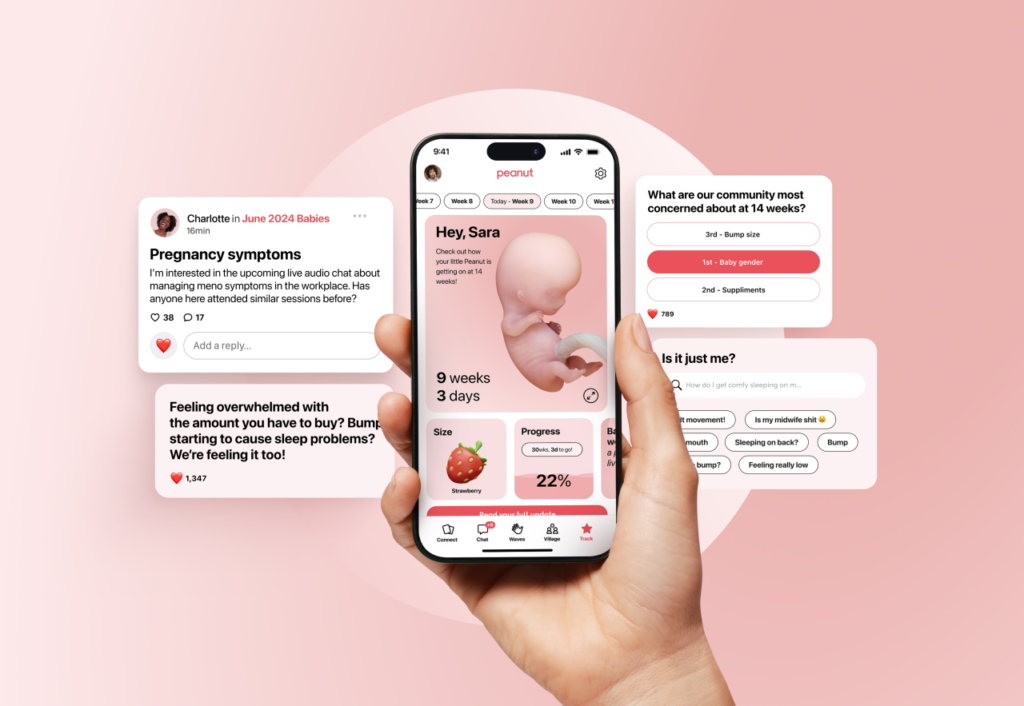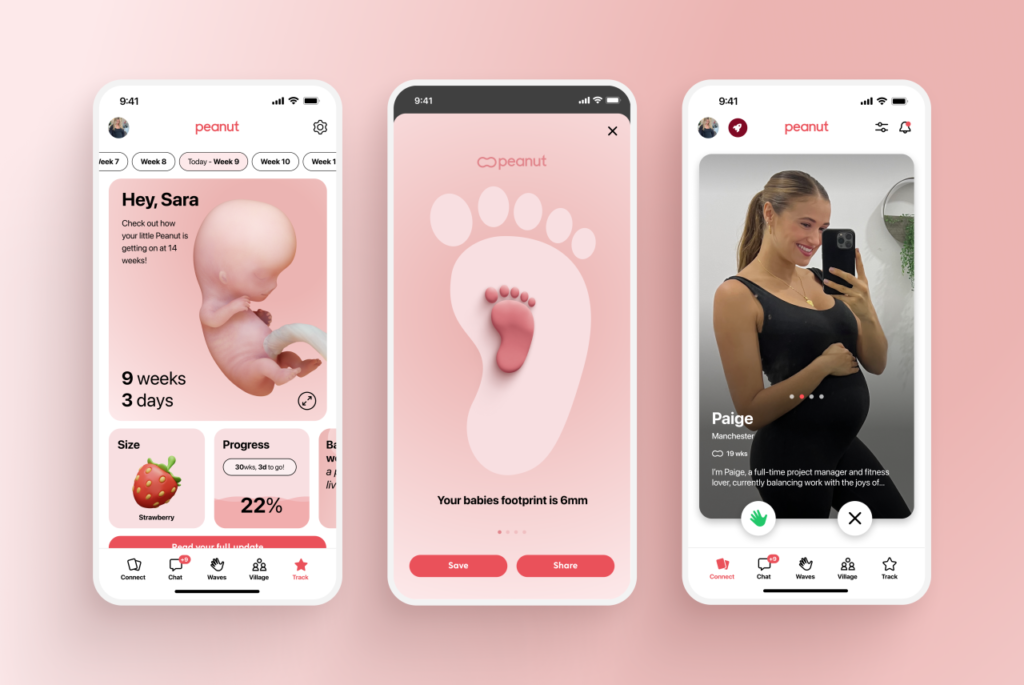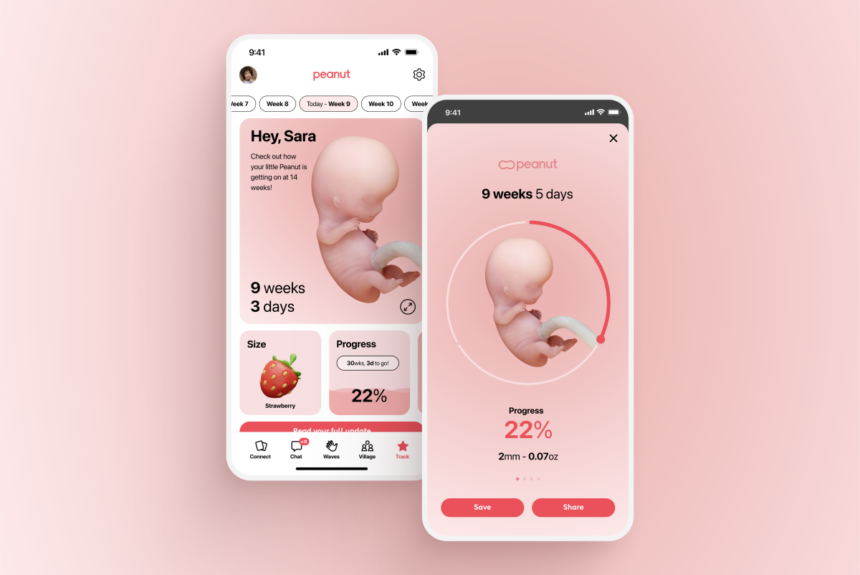Peanut, the social networking app designed specifically for women, is expanding its platform with a new pregnancy tracking feature, Peanut Track. Launched after seven years of collecting insights from millions of user interactions, this new tool leverages AI to anticipate the most common questions women have throughout their pregnancy journeys. The feature is designed to provide personalized support and guidance based on each user’s stage of pregnancy.
A Personalized Pregnancy Experience
Founded in 2017, Peanut was created to connect women through the various stages of life—ranging from puberty to menopause. Now, with Peanut Track, the company is taking its first major step toward offering a personalized utility tool within its social framework. This new feature is designed to go beyond community-building, helping women track their pregnancies individually, while still staying connected to others experiencing similar journeys.

Peanut’s CEO and founder, Michelle Kennedy, describes the new feature as a natural progression for the platform. “We’ve always been about community, But there are times when women aren’t necessarily looking to engage with someone else—they’re simply seeking reliable, personalized information. With Peanut Track, we’re serving users the content they need based on the patterns we’ve seen from seven years of women asking similar questions.”
AI-Powered Insights Tailored to Every Stage of Pregnancy
Peanut Track offers users daily, AI-generated content tailored to their specific pregnancy stage. Whether a woman is entering her second trimester or approaching her due date, the tool anticipates her needs and provides content written by gynecologists and other experts. Expectant mothers can learn what to expect during each stage and receive well-being tips curated specifically for them.
The app also includes familiar pregnancy metrics, such as baby size comparisons (e.g., “Your baby is now the size of a peach!”) and expected symptoms. However, Peanut Track differentiates itself by remaining true to Peanut’s community-centric mission. While women can track their pregnancy progress individually, the app also connects them with other users in the same stage of pregnancy, fostering a sense of camaraderie and shared experience.

Listening to the Peanut Community
The launch of Peanut Track is a direct response to feedback from the app’s user base. Kennedy emphasizes that Peanut has always been community-driven, with features and updates often inspired by the needs and desires of its users. “We’re in a position where we can talk to our community about what they want, and work with them to implement their vision,” Kennedy said.
Looking Ahead: Peanut Grow for Early Motherhood Support
Peanut Track is just the beginning. In 2024, Peanut plans to launch Peanut Grow, a tool designed to support women during the early stages of motherhood. With this upcoming feature, users will be able to track their newborn’s development, from feeding schedules to diaper changes and more.
But Peanut Grow isn’t just about tracking a baby’s growth—it’s about checking in on the mothers themselves. “You can track feedings and poops, but what about you? How’s your mood? Are you feeling supported?” Kennedy explained. The focus on maternal well-being is especially important given the emotional challenges many women face after childbirth, including postpartum depression and loneliness. Peanut Grow aims to address this by offering not just tracking, but solutions—like connecting mothers with others who are going through similar experiences.
A Growing Company with a Mission
Peanut’s growth has been supported by $32 million in funding to date, including a $10 million round in August 2022, which helped the company achieve profitability. The app’s continued success and evolution showcase its commitment to empowering women with the resources, community, and personalized guidance they need through every stage of life.
By expanding from a platform focused solely on social networking into a tool that offers AI-powered support and insights, Peanut is redefining how women experience pregnancy and early motherhood—giving them both the information they need and the community they crave.










